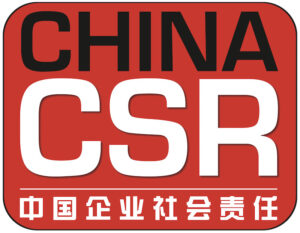At a gathering of more than 1,000 leading suppliers, Chinese officials and non-governmental organizations in Beijing, Wal-Mart has outlined a series of goals to build a more environmentally and socially responsible global supply chain.
At the summit Lee Scott, president and CEO of Wal-Mart Stores, stated that sustainability is about building a better business. Wal-Mart thinks it is essential to their future success as a retailer and to meeting the expectations of customers. He added that maintaining the trust of their customers — today and in the future — is tied hand-in-hand with improving the quality of the company's supplier factories and their products
The company will focus on areas aimed at meeting or exceeding social and environmental standards, driving innovation and efficiency and building stronger partnerships with suppliers, government and NGOs.
Scott also said that he firmly believes that a company that cheats on overtime and on the age of its labor; that dumps its scraps and chemicals in rivers; and that does not pay its taxes or honor its contracts will ultimately cheat on the quality of its products. And cheating on the quality of products is the same as cheating on customers. Wal-Mart will not tolerate that.
In the past Wal-Mart has had a mixed history on corporate social responsibility issues in China. While it has promoted energy saving initiatives and been proactive on the reduction of the use of plastic and packaging, there have also been reports of selling out-of-date food products. For example when Shanghai Pudong New District Court sentenced a Wal-Mart Supercenter in the area to pay compensation to a customer surnamed Lu who had mistakenly eaten three boxes of out-of-date cookies sold by Wal-Mart. According to local media, the court said that Wal-Mart had cheated the consumer by turning the best-before date on the imported cookies into the production date on the Chinese-language label.
Wal-Mart has also been accused of IPR infringements in China. For example, Chinese pop singer Sun Nan filed a lawsuit against Wal-Mart Changsha Huangxing Road Store, Guizhou Weixun Technology Development Company and Shandong Culture Audio and Video Publishing House, accusing the three parties of violating the copyrights of his songs. And in the U.S., Wal-Mart has vigorously resisted the unionization of its employees, giving it a low-cost source of labor for its numerous megastores. It has also been criticized for indirectly contributing to poor working conditions in China, due to the price pressure it places on its suppliers, many of whom do their manufacturing there.

